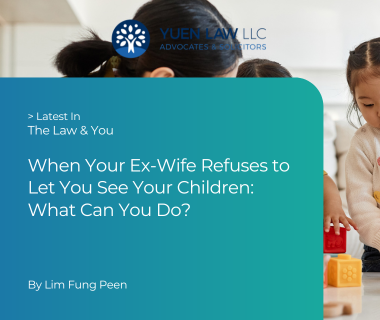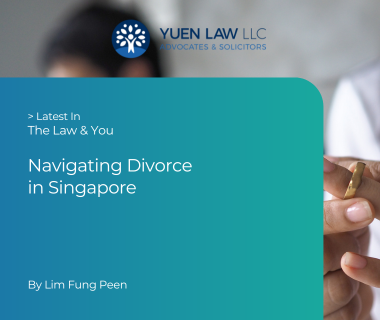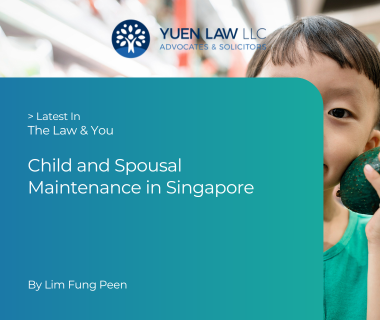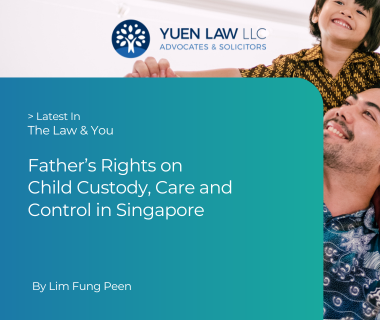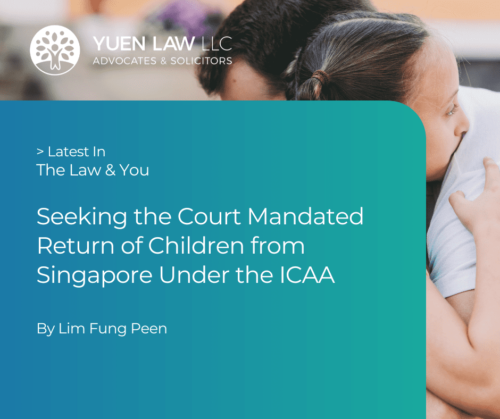This article examines the decision in Colin John Blanch (Commissioner of Police, Western Australia Police) and Morgan [2024] FCWA 88. In this case, the Family Court of Western Australia clarified the jurisdictional facts required to establish a return order under the Hague Convention on the Civil Aspects of International Child Abduction (HCCAICA). The court addressed how to determine the habitual residency of children prior to their removal and the threshold required to establish a “grave risk” to the children.
Background of the International Child Abduction Case
We acted for the father in a case of child abduction of the mother of their two young boys. The mother had absconded with the two boys from Singapore to Australia without the father’s knowledge or consent. In this case, we assisted the father in seeking the amicable and voluntary return of the children and subsequently provided expert witness evidence in the above court proceedings in Family Court of Western Australia.

Firstly, we assisted the father in seeking the voluntary return of the children to Singapore under the Hague Convention on the Civil Aspects of International Child Abduction (HCCAICA) by an application through the Singapore Central Authority (SCA). The Singapore Central Authority helped to liaise the Australian Central Authority. When the mother refused to do so, we advised the father to take out Hague Convention application in the Family Court of Western Australia.
Secondly, in the Hague Convention application, we assisted the father in providing expert witness evidence in the proceedings in support of the Australian Central Authority’s application for the return of the children to Singapore.
The Issue of Habitual Residence
The Court was not satisfied that “habitual residence” is established, or not established, simply by an arithmetic calculation of the amount of time spent by the children in a particular country.
Despite the mother’s reluctance to move to Singapore, the mother nevertheless acted in a manner consistent with the intention to make this a settled move for the family. Different intentions between the parents about the move to Singapore must be viewed against the background of the actions and steps the parents took to establish the family’s life in Singapore. From the children’s perspective, the family had established their life in Singapore at the time that the children were wrongfully removed in April 2023. Merely the fact that the children changed school does not derogate from this conclusion. Given this analysis, the Australian Court did not accept the mother’s submission that the children had no place of habitual residence when the mother removed them from Singapore in April 2023. The children were habitually resident in Singapore immediately prior to their removal.
The Court accepted the evidence of the expert witness, Lim Fung Peen that the father had rights of custody in relation to the children, pursuant to the law in Singapore, immediately before they were removed to and retained in Australia; the children’s removal to and retention in Australia is in breach of the father’s rights of custody; that at the time of the children’s removal to Australia, the father was actually exercising rights of custody jointly with the mother. The children’s removal to and retention in Australia, since 23 April 2023, is “wrongful”.
The Australian Court was satisfied that the children were habitually resident in Singapore immediately before the mother removed them to Australia on 23 April 2023. Justice Berry cited the following reasons.
- The duration of the family’s stay in Australia was caused by the COVID-19 pandemic and travel restrictions imposed during that time. The Court is satisfied that, absent international conditions surrounding COVID-19, the parties would not have remained in Australia for as long as they did. The father’s intention was to attend his sister’s birthday party in March 2020, and then return to the Philippines. Only because he was not able to do so did the mother and children travel to Australia. The family moved to Singapore as soon as practicable after international conditions permitted them to do so.
- While the mother was reluctant to move to Singapore, the family did so in a manner consistent with a mutual intention to make this country their habitual residence in the foreseeable future.
- The father and the mother accept that Singapore is a superior location for each of their occupations, for travel purposes, in comparison to Australia.
The Issue of Grave Risk to Children
The mother relied upon three categories of facts to support her defence. Firstly, the grave risk of the children being exposed to psychological harm if a return order was made. Second, the grave risk of the children being placed in an intolerable situation if a return order was made. Third, the capability or willingness of Singapore to manage the grave risk of the children being exposed to psychological harm or otherwise being placed in an intolerable situation if a return order was made. The Court had the discretion to make or not make a return order if grave risk is established.
The Court agreed with the Central Authority’s case that:
- The evidence relied upon by the mother does not reach the threshold required to establish “grave risk”. On the Central Authority’s case, the mother fails upon analysis of the first and second categories of facts;
- The evidence of Singapore’s relevant applicable laws show that Singapore has ample capacity to properly deal with the children’s circumstances if a return order was made.
The Court accepted Lim Fung Peen’s evidence that:
- The mother could consider applying for a Personal Protection Order, defined under the Women’s Charter 1961, as well as a Protection Order under the Protection from Harassment Act 2014.
- The standard of proof to obtain such orders in Singapore is the balance of probabilities. This means that the court must be satisfied that an event of family violence, intentional harassment, alarm, distress, fear, provocation, or facilitation of violence occurred if, based on the evidence, the event was more likely than not to have happened.
Access to Protection from Family Violence and Harassment in Singapore
The Court was satisfied that the mother has access to legislation in Singapore to protect her from family violence and harassment, as defined under Singaporean law. While the legislation is different from Australian law, the Court is satisfied that its terms are sufficient to deal with any conduct of the father falling within its scope, during the currency of any legal proceedings in Singapore.
Based on Lim Fung Peen’s evidence and other considerations, the Court rejected the mother’s case that Singapore’s legal system is unable to manage the children’s exposure to grave risks of psychological harm or an intolerable situation. The defence does not succeed simply because Australian law may provide a higher degree of protection (i.e have a lower threshold of engagement) to the mother or the children, than Singaporean law.
Given the degree of planning undertaken by the mother to remove the children to Australia, and immediately institute proceedings here, both in this Court and for a Family Violence Restraining Order in the Magistrates Court of Western Australia, in the circumstances where the Court has found that the mother did not need to ‘flee” with the children, the purpose and underlying philosophy of the Convention would be grossly undermined if a return order were refused.
Conclusion and Return of Children
After a full three-day trial, the Court ordered the return of the children to Singapore with the father on 10 May 2024.
Our Director, Lim Fung Peen served as the expert witness in this case, providing qualified evidence on Singaporean law.
For information and/or assistance on International Child Abduction matters, you may contact:
CONTACT INFORMATION
Lim Fung Peen
Director and Head of Private Wealth & Family Practice Group
T: +65 6536 6037
E: fungpeen@yuenlaw.com.sg
View Fung Peen’s bio here.


